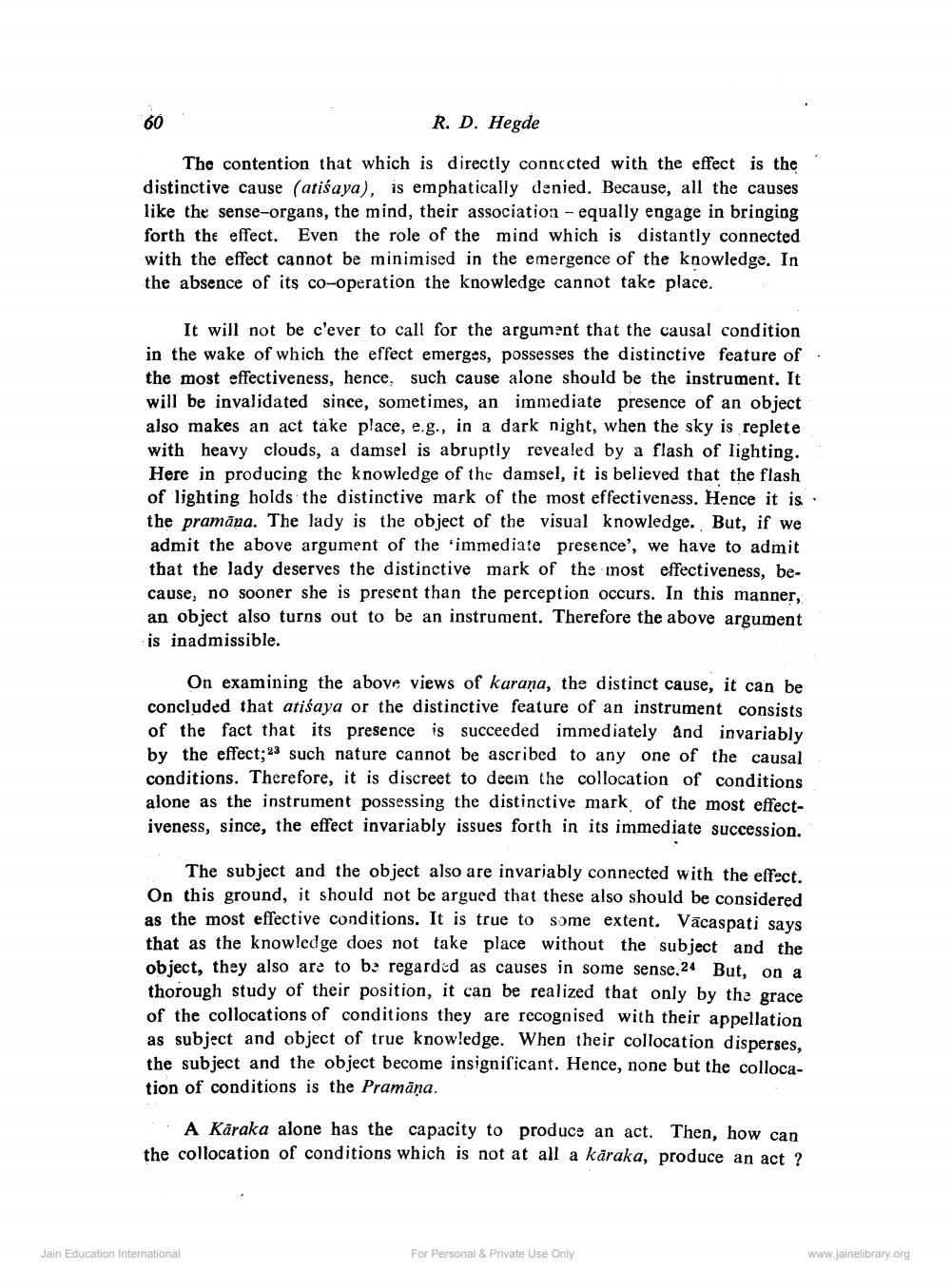________________
R. D. Hegde
The contention that which is directly connected with the effect is the distinctive cause (atisaya), is emphatically denied. Because, all the causes like the sense-organs, the mind, their association - equally engage in bringing forth the effect. Even the role of the mind which is distantly connected with the effect cannot be minimised in the emergence of the knowledge. In the absence of its co-operation the knowledge cannot take place.
60
It will not be c'ever to call for the argument that the causal condition in the wake of which the effect emerges, possesses the distinctive feature of the most effectiveness, hence, such cause alone should be the instrument. It will be invalidated since, sometimes, an immediate presence of an object also makes an act take place, e.g., in a dark night, when the sky is replete with heavy clouds, a damsel is abruptly revealed by a flash of lighting. Here in producing the knowledge of the damsel, it is believed that the flash of lighting holds the distinctive mark of the most effectiveness. Hence it is the pramana. The lady is the object of the visual knowledge. But, if we admit the above argument of the 'immediate presence', we have to admit that the lady deserves the distinctive mark of the most effectiveness, because, no sooner she is present than the perception occurs. In this manner, an object also turns out to be an instrument. Therefore the above argument is inadmissible.
On examining the above views of karana, the distinct cause, it can be concluded that atisaya or the distinctive feature of an instrument consists of the fact that its presence is succeeded immediately and invariably by the effect;23 such nature cannot be ascribed to any one of the causal conditions. Therefore, it is discreet to deem the collocation of conditions alone as the instrument possessing the distinctive mark of the most effectiveness, since, the effect invariably issues forth in its immediate succession.
The subject and the object also are invariably connected with the effect, On this ground, it should not be argued that these also should be considered as the most effective conditions. It is true to some extent. Vacaspati says that as the knowledge does not take place without the subject and the object, they also are to be regarded as causes in some sense.24 But, on a thorough study of their position, it can be realized that only by the grace. of the collocations of conditions they are recognised with their appellation as subject and object of true knowledge. When their collocation disperses, the subject and the object become insignificant. Hence, none but the collocation of conditions is the Pramāṇa.
A Karaka alone has the capacity to produce an act. Then, how can the collocation of conditions which is not at all a kāraka, produce an act ?
Jain Education International
For Personal & Private Use Only
www.jainelibrary.org




